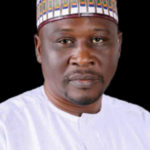Amnesty International has asked the Ghanaian government to act fast and protect hundreds of people, mostly older women, who are being accused of witchcraft and suffering human rights abuses.
In a statement released on Monday, the group said these accusations are dangerous and often lead to attacks, threats, or even death. Amnesty said that people who are poor, elderly, disabled, or do not fit expected gender roles are more at risk of being targeted.
“The accusations, which can lead to threats, physical attacks or even death, usually start within the family or among community members following a tragic event such as an illness or a death,” the group said.
Even though Ghana’s parliament passed a bill in 2023 to make it a crime to accuse anyone of witchcraft, the bill has not yet been signed into law. Amnesty says this delay is leaving many people unprotected and vulnerable.
Amnesty’s Country Director in Ghana, Genevieve Partington, said, “The authorities should pass legislation specifically criminalising witchcraft accusations and ritual attacks, including protective measures for potential victims.”
She also said that the government should raise awareness in rural areas and make sure people living in witch camps have basic needs like food, housing, and clean water.
In many northern parts of Ghana, belief in witchcraft is still very strong. People accused of being witches are often rejected by their families and communities. Many are forced to stay in camps run by traditional priests. But these camps offer only poor living conditions, and some of the accused either die there or are taken in by someone else.
Partington is also part of the Coalition Against Witchcraft Accusations, which was formed after a 90-year-old woman was beaten to death in northern Ghana in 2020 because she was accused of being a witch.
Amnesty also pointed out that this problem is not limited to Ghana. In 2024 in Guinea-Bissau, eight women died after they were forced to drink poison when accused of killing two boys. In the Democratic Republic of Congo, two women in their sixties were stoned and burned in public after they were blamed for causing deaths.
Leo Igwe, founder of the Nigeria-based group Advocacy for Alleged Witches, said, “This is a reflection of how we treat elderly people.”
Samadu Sayibu, who works with the Ghanaian rights group Songtaba, said these cases also show how poverty and gender inequality make some people easy targets.
Amnesty International has continued to call on the Ghanaian government to act quickly to protect people facing witchcraft accusations, saying failure to act puts more lives in danger.











